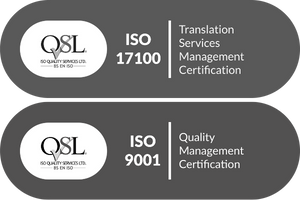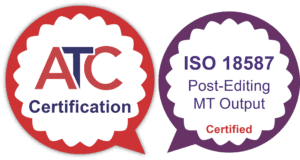Adjusting to a new country can be difficult for anyone, but it comes with unique challenges for those who are Limited English Proficient (LEP). One of the most stressful parts of the transition is getting set up with a primary care doctor or figuring out what to do in case of a medical emergency. For the LEP community, language barriers can make it difficult to communicate with medical professionals and understand instructions. This can lead to anxiety and feeling isolated at a time when support is needed the most.
For a monolingual English-speaking patient, getting established with a primary care provider is a fairly straightforward process:
- They go in for a new provider consultation and explain their medical history, such as chronic illnesses and surgeries.
- A list of medications they are taking and are allergic to is given to the provider.
- They go over conditions (if any) for which they will need routine treatment.
- The provider keeps all of this information stored online so that a clinic or hospital has access to it for reference in case of an emergency.
 LEP patients, on the other hand, usually end up visiting the Emergency Department (ED) for health issues because they do not have a primary care provider. LEP patients require the same standard of care as patients who are English-proficient, but unfortunately, language barriers can sometimes make this difficult to achieve. Therefore, the expectation may be that the patient will turn out to be a liability and more expensive because they have little to no record of their medical history. This is seen as a potential financial loss because the provider is running the risk of not diagnosing them properly the first time due to not having a clear idea of their symptoms. There is also the risk of the patient having problems with any prescribed medication if they are unable to communicate their allergies or don’t understand the instructions for taking the medication properly.
LEP patients, on the other hand, usually end up visiting the Emergency Department (ED) for health issues because they do not have a primary care provider. LEP patients require the same standard of care as patients who are English-proficient, but unfortunately, language barriers can sometimes make this difficult to achieve. Therefore, the expectation may be that the patient will turn out to be a liability and more expensive because they have little to no record of their medical history. This is seen as a potential financial loss because the provider is running the risk of not diagnosing them properly the first time due to not having a clear idea of their symptoms. There is also the risk of the patient having problems with any prescribed medication if they are unable to communicate their allergies or don’t understand the instructions for taking the medication properly.
Why do I need a certified or qualified medical interpreter?
At least one person in the clinic or ED likely knows a second language, which can be very helpful when seeing Russian-speaking patients. However, this could also create a variety of problems. Having the patient’s English-speaking family member there or utilizing a Russian-speaking nurse might be convenient, but it could also lead to communication difficulties.
Reasons to use a trained medical interpreter:
- There is medical terminology that a family member might not be able to translate, whereas a qualified medical interpreter is trained in the correct verbiage in both languages.
- An English speaking family member or a bilingual nurse may not always be available.
- There is a conflict of interest when a family member or friend interprets for the patient. Professionally trained interpreters are neutral and unbiased.
- Internal staff should be kept focused on their most important functions in order to increase productivity.
- Studies show that LEP patients on Medicaid were 94% more likely than English proficient patients to use primary care and 78% less likely to use the emergency department when having access to a medical interpreter.
Hiring a qualified medical interpreter can assist the provider with ensuring the best care and the most effective use of resources. To summarize, by providing them with a professional, medical interpreter, you break down the language barrier and are ultimately saving more money due to a variety of reasons, such as:
- The patient is more likely to get an accurate diagnosis the first time because of less testing and the provider receives clear information about chronic conditions and medical history.
- The provider will be able to prescribe a medication that they know the patient is not allergic to, therefore preventing the patient from returning for new health concerns and needing a new prescription.
- According to the American Medical Association, having certified medical interpreters plays a huge role in ensuring the best care and experience possible for LEP patients, therefore generating more revenue overall.
At Linguava, we are dedicated to reducing communication barriers and providing equity to all members of our community through language access services.
If you are interested in learning more about incorporating language access into your organization or would like to book a training session, contact us today.








